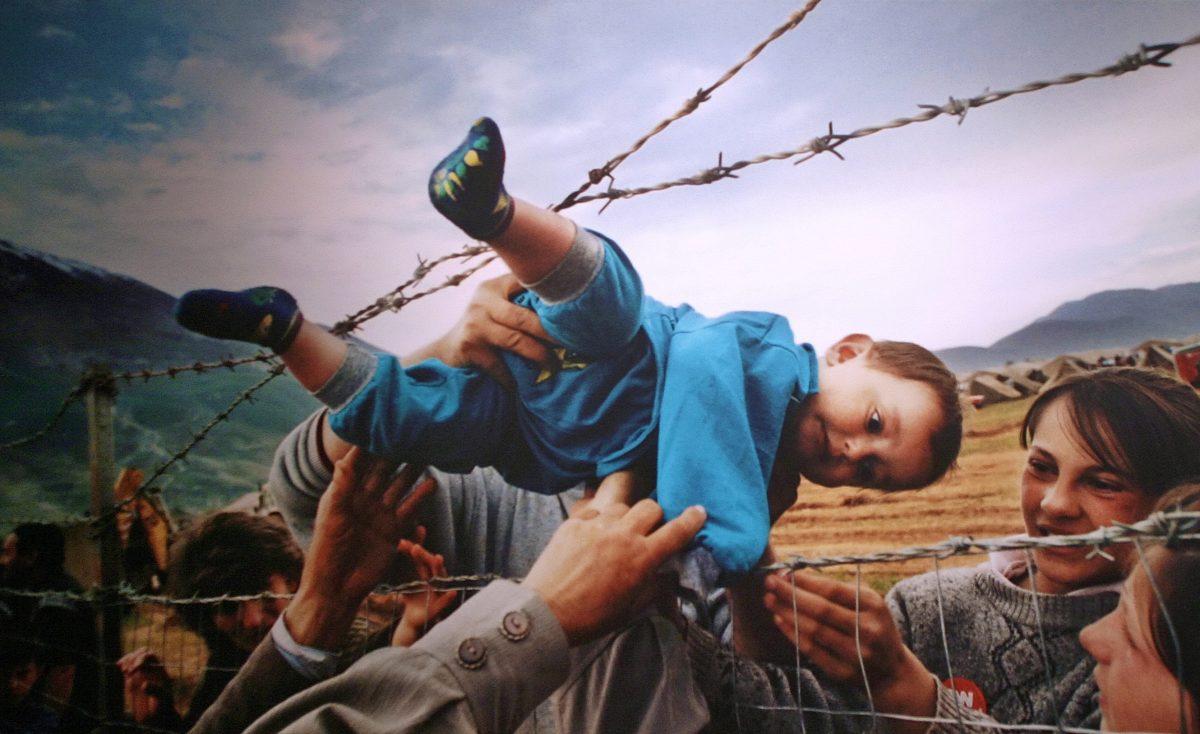In the wake of the Paris attacks, the United States saw a polarized discussion over refugee resettlement: one side was adamantly against it while the other side was thoroughly for it. Governors of 31 states have verbally refused to accept refugees (30 Republican, 1 Democrat). President Obama has criticized such lawmakers for being afraid of “widows and orphans” and denounced such “un-American” proposals.
As a second-generation American who holds Republican and conservative ideas, the most hostile remarks of the far-right vex me. However that is far from my biggest concern; I am most concerned about the GOP approach to defeating ISIL, which goes hand in hand with citizen safety and refugee resettlement.
There are many things the GOP needs to put into perspective when discussing American safety. First, the U.S. has an advantageous geographic position: the Atlantic Ocean is a natural barrier, a first “vetting” of sorts, to the en masse arrival of refugees. We do not have the immediate, overnight crises Europe has — that is, refugees literally stepping into Europe everyday and many more gathering at ports of entry. With this, the U.S. is currently only dealing with refugee resettlement, not both resettlement and asylum (asylees apply for protection while physically in the country of application; refugees do not). This makes our situation different from that of Europe and the “first-asylum” countries of Jordan, Lebanon, and Turkey, who are taking the brunt of the crisis because of their close proximity.
Besides geography, there are also the logistics of time and cost. Waiting for application approval is lengthy and costly: these refugees cannot legally work and the typical waiting period is at least a year, during which the United Nations first conducts its checks before referring refugees to the United States for more checks. If ISIL wanted to attack us on American soil, they would do so through a faster method, which is the visa waiver program. For example, if an ISIL fighter held an E.U. passport, they could automatically fly into any American airport and start operating. There is no waiting, no checking, no tracing. As many members of the intelligence community agree, lawmakers must re-assess and evaluate appropriate ways to tighten such waiver programs that can be easily exploited. Also, to prevent ISIL fighters from obtaining U.S. legal-permanent residence status as a refugee, we must employ not only stringent vetting procedures, but also timely resettlement checkups, constant intelligence updates in cooperation with the EU and Gulf nations and most importantly, prompt government responses.
However, all this does not mean that we should de facto adopt Europe’s open-door policy. Even with our strong history of admitting refugees and the many national benefits reaped, we should not react and thus operate heavily on historical context alone in such a situation. We must take our nation’s current set of economic and social circumstances into account, as the United States that accepted Vietnamese refugees in the late seventies and the United States that accepted Bosnian refugees in the mid-nineties are both very different from the United States accepting Syrian and Iraqi refugees today. It would be irresponsible of the U.S. to welcome a number of refugees we cannot adequately resettle and support into American cities, even if this number is less than what we have previously taken in other refugee crises. It would also be a mistake for us to not push for resettlement — with U.S. financial and logistical support — in other secure Gulf nations closer for the refugees to reach. This option involves less dangerous passage and costly waiting periods for refugees than relocation to Europe or even the United States.
Lastly, while it is currently necessary for refugees to flee ISIL-threatened areas, when ISIL is eventually defeated, the opportunity for refugees to return to their motherland must be feasible. We would not be truly conquering ISIL if we only safely relocate as many threatened refugees as we can; we truly conquer ISIL when individuals no longer have to flee and those who have been forced to can successfully resettle in their homeland. This will have to occur through international diplomatic, military, financial and humanitarian efforts in both the conflict and post-conflict stages.
Undoubtedly, U.S. lawmakers have the foremost obligation to protect the interests and security of their constituents. How they approach this will inevitably spawn fierce debates. In the case of the GOP, a more restrictionist approach is favored, which has both its pros and cons. However, the GOP must note that refugee flow is not going to stop overnight — or anytime soon. The U.S. needs to prepare quickly for — in both its cooperative and leadership positions — what is now an impending halt to Europe’s open-door refugee policies. If there is no adequate international response in place when this happens, then what we will see is accelerated refugee flow and more chaos. And for an opponent as mobile, inventive, and communications-savvy as ISIL, these two factors will further drive their ideological infiltration, actual territorial control, and future attack plans. So be it through refugee resettlement, air strikes, missions by special operations forces, or other means, this much is clear: the correct and humane handling of the refugee crises is a duty we must not neglect, but must take with all due seriousness and caution.




